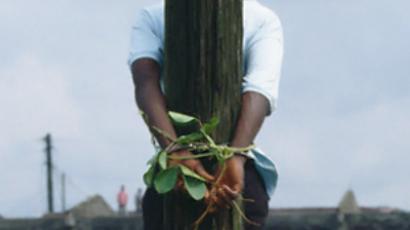Indian tribe finds survival through boxing
In India, extreme poverty means many children have little chance of climbing the social ladder, but in one small village, tribal boys and girls have come to see boxing as a ticket to a better life.
Every Sunday the remote village of Chalkari is transformed into a boxing school where about 70 children from the Birhor tribe are taught the fundamentals of pugilism. Trapped in poverty, they see it as a means of escape. That means girls are picking up the gloves as well.
Trainee girl boxer Suman Kumari says “I want to learn boxing so that I can join the police. I want to get a better life. I want to move on from this village, and this state.”
Ten-year-old Kumari sees boxing as a ticket to a middle-class life, since the Indian government rewards top athletes with public sector jobs.
In fact, for girls, it is actually easier to make progress in this sport than for boys: less competition means more opportunity.
“There are very few girls in sport in India today, so you can get ahead very quickly,” explains Paritosh Kumar, the secretary of Dhanbad District Boxing Association. “If there are 100 boys, there are five girls competing, so as a girl you have a better chance of getting to the state and national level. And that’s where we select for the international level too.”
For most of the children it is financial rewards rather than sporting ones that are the priority. Even so, the two go hand-in-hand, and that’s what provides the motivation.
Mairh DAV School Teacher Ashutosh Kumar explains that “If they get a regular salary, and earn 100 or 200 dollars a month, they will be able to educate their children and start a new life. We think with boxing they can move ahead.”
In Chalkari, people depend almost entirely on government work-for-food programmes for survival, but the food the youngsters get is still not enough and is holding back their pugilistic progress.
Paritosh Kumar names the difficulties that interfere with the training of a novice Indian boxer:
“First of all, they need a better diet. They only eat rice. If they were to get food, some protein and sugar from the government, then they could box better, because this will make them stronger.”
For a tribe on the verge of extinction, a sport like boxing can provide the impetus it needs to survive and adapt in the 21st century.













